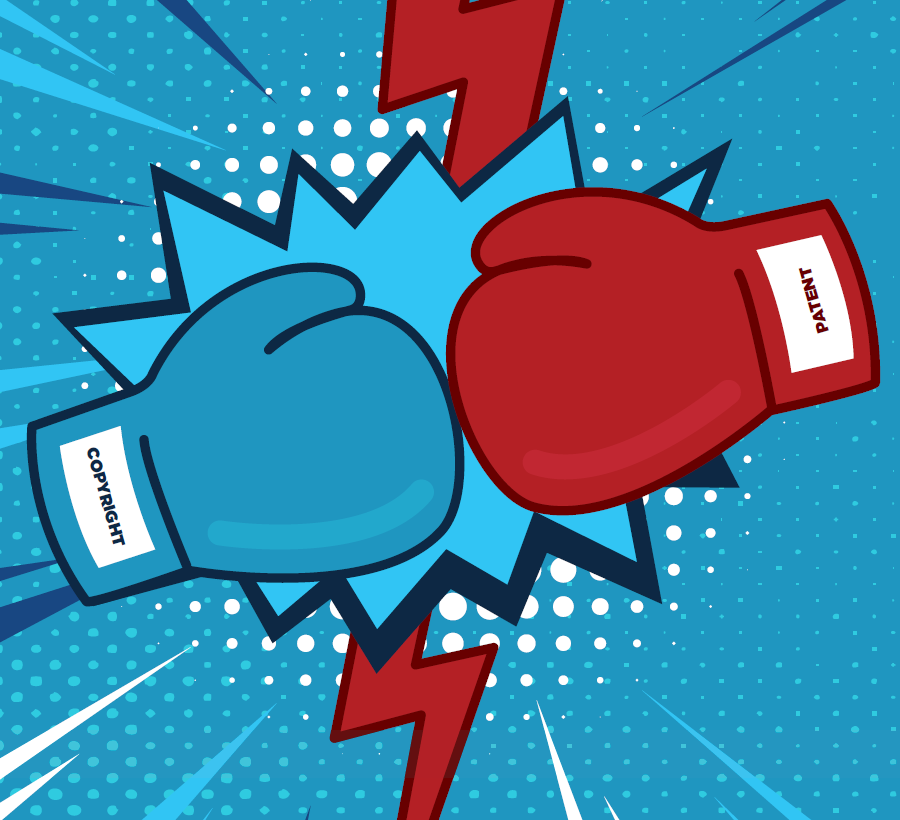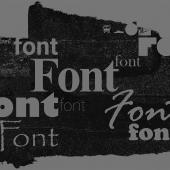
CHEAT SHEET
- Draft with intent. Make a conscious decision when drafting the arbitration agreement to include or exclude patent infringement disputes.
- Confidentiality. Arbitration proceedings are typically confidential, and it could be beneficial to one or both parties to keep sensitive commercial and competitive information from the public.
- Tribunal members. Specify the experience in patent law or underlying technology that you want the arbitral tribunal members to possess.
- International disputes. When parties are based in different jurisdictions, designate a country that is a signatory to the New York Convention as the location of the arbitration.
Patent litigation is often a high-stakes, zero-sum game. Either the patent is valid or not. Either the competitor’s product infringes or it does not. When a company’s current and future value depends on the strength of a patent, intellectual property disputes are often some of the most substantive and complex cases an in-house attorney may encounter.
Yet in the United States, while any federal trial judge can hear a patent case, there are probably fewer than 20 district court judges with the requisite experience and expertise to handle the technical nuances of a sophisticated intellectual property dispute. And if a contract includes a general arbitration provision, the parties run the risk of the contractual language applying general corporate dispute resolution terms, including the general selection of arbitrators, to a complex patent matter for which they are ill prepared.
Given the high value of many patent disputes, however, the artful and strategic use of arbitration can be an efficient way to bring the right expertise and structure to litigation. But to make the best use of arbitration, in-house counsel need to think of the implications of blanket arbitration language, and how it could affect the party’s interests years in the future.
THE BACKGROUND ON ARBITRATION
Agreements to resolve disputes through arbitration, rather than litigation, are binding enforceable contracts. The Federal Arbitration Act establishes a federal policy to enforce arbitration agreements. This policy applies to all types of disputes, including patent infringement and invalidity disputes, as well as disputes involving other types of intellectual property. While such disputes could be arbitrated, patent infringement disputes may raise issues that are not well suited for arbitration. Serious consideration of several issues should be made before agreeing to arbitrate disputes concerning infringement of a US patent.
Many arbitration agreements in commercial contracts are broad and apply to any dispute arising out of or relating to the commercial relationship. This encompasses patent infringement disputes even in agreements where patent issues are not central to the agreement. That a patent dispute is subject to arbitration often is a surprise to the litigators when a dispute has arisen. Most patent infringement disputes are typically resolved through litigation rather than arbitration, particularly in the United States and Europe, because the courts in those forums have a reputation for enforcing intellectual property rights. In drafting a dispute resolution agreement where patent infringement disputes may arise, we recommend making a conscious and express decision in the arbitration agreement to include or exclude patent infringement disputes.
If a party does not elect to exclude patent infringement disputes altogether from the scope of an agreement to arbitrate, we encourage either addressing issues that will arise in a patent infringement dispute specifically as a section of the arbitration agreement or drafting the agreement with these issues in mind for all disputes, including patent infringement.
I. ARBITRATION BENEFITS AND DISADVANTAGES
The following factors should be considered when deciding whether to arbitrate a patent infringement dispute.
A. Confidentiality
Typically, arbitration proceedings are confidential, whereas court proceedings are not. Confidentiality is an important consideration for many disputes and particularly for patent infringement disputes, where keeping sensitive commercial and competitive information from the public will be beneficial to one or both parties. The dispute may involve valuable confidential details related to the accused product or service, such as technical design and product operation details; marketing and sales information, including volumes, pricing, and margins; supply chain strategies and business partners; and customer data.
B. Arbitrator expertise
Arbitration allows the parties to select who will decide the dispute and can be used to ensure the arbitral tribunal has experience in patent law and/or the underlying technology. The arbitration agreement can specify that the arbitral tribunal has certain experience or require the arbitrator be selected from a designated roster of patent dispute arbitrators. This addresses the risks and concerns that jurors lack experience and education to address the patent dispute issues.
C. Schedule and cost
Parties may have more input over the speed and costs of the proceeding in arbitrations generally by imposing a deadline for an award and by agreeing to a scope of discovery and pre-hearing proceedings that are more narrow and targeted than a court proceeding. This flexibility enables the parties to ensure a “rocket docket” pace and run an efficient arbitration with defined issues, scope, and schedules. Conversely, failure to prescribe a strategic framework for the arbitration may lead to extended discovery, proceedings, and uncontrolled costs.
D. No appeal
Arbitrations are generally not subject to appeal of the merits. Once a final award is issued, the prevailing party may file a court action to confirm the award (and convert it into an enforceable judgment), while the losing party may file to vacate or modify the order. An award is confirmed unless there are grounds to vacate or modify the award. There are only four limited grounds to vacate an award under the FAA, and those are the only grounds a court may consider. Modification is available to correct obvious mistakes such as arithmetic errors or misidentifying the parties subject to the award.
Hall Street Assocs. L.L.C., 552 U.S. 576 (2008) (disallowing a contract-based “manifest disregard of law” standard as a ground for vacatur). The four FAA grounds for vacatur of an award are (1) corruption or fraud in procuring the award, (2) arbitrator bias, (3) failure to consider evidence or postpone a hearing for good cause, and (4) the arbitral tribunal exceeded its authority. 9 U.S.C. § 10.
The lack of a meaningful appeal of the merits is a major consideration in patent infringement disputes, and ceding appeal rights upfront should not be undertaken lightly. Statistics show that the Federal Circuit does not affirm the district court decisions in roughly 30 to 50 percent of the appeals of patent infringement disputes, a relatively high figure. A reversal likely indicates the district court erred on one or more of the following key issues addressed in a patent infringement dispute:
- Claim construction;
- Validity or invalidity;
- Infringement;
- Granting or denying equitable relief;
- Damages; or,
- Exemplary damages and attorney’s fees.
We assume similar, or at least fairly high, error rates would be found in arbitration awards. The critical difference is that in arbitration the non-prevailing party would be without the usual recourse to appeal to the courts through a motion to vacate an award.
E. Limited discovery
While many arbitration organizations allow limited discovery, there is no such discovery as a right that exists under the Federal Rules of Civil Procedure. The Federal Arbitration Act does not authorize third-party discovery, but it does allow the tribunal to issue a subpoena to compel a third party to testify at the hearing and to bring relevant documents.
Generally, parties may have less pre-hearing discovery in arbitration: fewer documents exchanged, fewer (or possibly no) depositions, and no interrogatories or requests for admissions. Under some circumstances, however, parties to an arbitration may find themselves burdened with excessive discovery. Because arbitration is a consensual proceeding, some arbitral tribunals simply defer to each party as to what discovery is needed and grants as much discovery as requested to avoid a challenge that a party was not able to present a complete and adequate case. There is no recourse when this occurs.
The lack of precision concerning discovery in arbitration necessitates careful planning, particularly in a patent infringement dispute where the parties often do not have access to the same information when the dispute arises. For example, the patent holder may not have detailed information concerning the alleged infringer’s specific design and practices in dispute and also may not have access to sales, marketing, and other economic information to establish damages. Likewise, the alleged infringer will not have information concerning the development of the patented invention and other instances where the patent was enforced to assist in its defenses. Broad discovery as a right under the civil procedure rules addresses these imbalances.
F. Timing and costs
Arbitration proponents claim arbitration is more efficient and less costly. Our collective experiences illustrate this is not always so. In any event, the decision between litigation and arbitration as a dispute resolution forum should not necessarily turn on assumptions as to which will provide a quicker resolution or which will cost less. The speed of the process and the overall costs of the dispute, whether in litigation or arbitration, are driven more by how contentious the dispute becomes, whether a third party has pertinent information and whether the tribunal (judge or arbitrator(s)) will establish and enforce milestones to move the proceedings to resolution.
Arbitration is not necessarily faster than litigation. Federal district courts have incentives to move cases off their dockets, and several courts have a reputation of a “rocket docket” that will move cases without much delay. An arbitration is not likely to produce a final award in significantly less time than these courts and may often take much longer if the arbitral tribunal is deferential to one or both parties who want a longer schedule.
Nor is arbitration necessarily less expensive, although it certainly may be. In arbitration, the parties must pay for the arbitral tribunal and, in some cases, for the organization administering the arbitration. These fees are not incurred in litigation.
In any event, the decision between litigation and arbitration as a dispute resolution forum should not necessarily turn on assumptions as to which will provide a quicker resolution or which will cost less.
Additionally, the costs of pre-hearing discovery are a function of what the parties request and what the arbitral tribunal allows. Our experiences are that costs incurred with such tasks as negotiating or litigating the scope of protective orders, collecting, reviewing, and exchanging documents, and taking depositions will not vary much because the proceeding is in arbitration rather than litigation. Where an arbitrator allows excessive discovery, the result is increased costs and an extended schedule. The degree of cooperation versus contentiousness between the parties and their lawyers and the number of witnesses and exhibits provide a better forecast of the final costs for the dispute regardless of whether the dispute is resolved in arbitration or litigation.
G. Experienced courts and specialized procedures
A significant percentage of patent infringement disputes are filed in US district courts (e.g., the Northern District of California or Delaware) where the judges have experience managing patent disputes. These courts have developed special procedures for patent infringement disputes that include establishing milestones for key events that advance the proceedings in a logical sequence. These procedures include:
- Exchange of key information, including claim construction contentions;
- Early identification of infringing products and devices;
- Deadlines for infringement contentions;
- Deadlines for invalidity contentions; and,
- A claim construction hearing to address claim construction disputes.
We also note that an agreement involving international commerce or an international party may raise different issues concerning discovery, witness testimony, expert reports, and presentation of evidence given the differences in the respective legal systems.
A key benefit of adopting a schedule that includes these milestones is the information and rulings narrow the number and scope of disputed issues, which in turn will help settlement, if the possibility of settlement exists, or shorten the trial, if one occurs. Many arbitration organizations do not have special rules for patent infringement disputes. Fortunately, a few organizations, such as the American Arbitration Association (AAA) and World Intellectual Property Organization (WIPO), have adopted special rules for patent disputes that are similar to the Northern District of California rules for patent infringement disputes. As discussed below, if a patent infringement dispute is to be arbitrated, the arbitration agreement should specify these rules will apply. Even if the arbitration agreement covers other types of disputes, the parties may agree to apply special patent arbitration rules to a patent infringement dispute.
II. ISSUES TO ADDRESS IN AN ARBITRATION AGREEMENT
Parties may decide to arbitrate patent infringement disputes in several contexts. The parties may have an existing commercial relationship governed by an agreement that includes an arbitration clause for resolving disputes. Moreover, the parties may be engaged in international commerce and select arbitration as a neutral forum for an enforceable decision.
If the parties are engaged in international commerce, arbitration can be used to avoid risks from litigating in the courts of the counterparty’s home country or other potentially unfavorable jurisdictions, and to ensure the final arbitral award will be recognized and enforced outside the United States under the New York Convention on Recognition and Enforcement of Arbitral Awards. The New York Convention is a treaty that for the United States is codified at 9 U.S.C. §§ 201 et seq.
Where arbitration is selected to resolve patent infringement disputes, there are a few points to consider when drafting the arbitration agreement. Keep in mind that your posture and bargaining leverage may differ from agreement to agreement, and these differences will influence how you address each issue. We also note that an agreement involving international commerce or an international party may raise different issues concerning discovery, witness testimony, expert reports, and presentation of evidence given the differences in the respective legal systems. You should consider these factors in determining how best to address the issues we identify below in each arbitration agreement rather than adopting a one-size fits all philosophy.
A. Administered versus non-administered arbitrations
Consider whether the arbitration agreement should designate an arbitration organization, e.g., AAA, WIPO, JAMS, or the Institute of Conflict Prevention and Resolution, to administer the arbitration. The primary benefits are assistance in selecting an arbitral tribunal, designated rules to govern the arbitration, review of the award to ensure it is in a legally sufficient form, and promotion of a prompt resolution of the dispute. Another advantage is that many organizations maintain a list of arbitrators. The primary disadvantage is cost: Administrative fees can be significant.
B. Specialized procedures and pre-hearing discovery
As discussed above, a structured discovery with specialized procedures for a patent infringement dispute can be a benefit of US district court litigation. Therefore, consideration should be given for requiring such structured discovery and procedures in an arbitration agreement involving patent infringement litigation. For example, the AAA has adopted Supplementary Rules for Patent Disputes that are similar to district court rules for patent disputes. We recommend identifying these or similar rules or procedures in the arbitration agreement.
The parties may want to specify in the arbitration agreement categories of documents the parties agree to exchange in the event a patent infringement dispute arises. Such categories may include product design and development documents, sales and marketing materials of the alleged infringer, and patent file and records of the invention of the patent holder.
C. Arbitral tribunal’s qualifications
Specify the experience in patent law or the underlying technology you want the arbitral tribunal members to have. One way to do so is to require the arbitrators be selected from a designated roster of arbitrators such as the AAA National Panel of Patent Arbitrators; however, keep in mind that when a commercial relationship extends over many years, the designated panel may no longer exist when the dispute arises. If you are designating a specific roster of arbitrators, consider adding language addressing what happens if the designated panel is not available, such as specifying relevant patent law and/or technology experience for the arbitrators.
D. Scope of the arbitration
Arbitration agreements often use the phrase “arising out of or relating to” to define the issues subject to arbitration. This phrase signifies a broad arbitration agreement and the intention to arbitrate all disputes relating to the underlying agreement or transaction. In the patent infringement context, such disputes may include breach of conditions or covenants of a license agreement, claim construction, infringement, and invalidity, and involve remedies including exemplary damages, injunctive relief, and an award of attorney’s fees. The parties may expressly exclude issues to be arbitrated as well as available remedies.
Even where parties have agreed to narrow the scope of arbitration, an arbitral tribunal may be susceptible to “issue-creep” and expand its scope beyond what the parties intended. In the United States, the default rule is that courts have the authority to determine whether a dispute is subject to arbitration. The parties should clearly and explicitly state in the arbitration agreement whether the default rule will apply or the arbitral tribunal has the authority to determine whether a dispute is subject to arbitration. One way parties manifest their intent to have the arbitrators determine whether to arbitrate issues is to adopt rules governing the arbitration, such as AAA Rules, that grant Kompetenz-Kompetenz, or competence-competence, the jurisprudential doctrine that gives authority to the arbitrators.
E. International commerce
A patent infringement dispute between parties based on different jurisdictions should specify the seat, or location, of the arbitration. We recommend designating a country that is a signatory to the New York Convention and that has a good reputation for enforcing arbitration awards.
Beyond enforcing the award, you should consider other issues in the event a dispute arises and you want relief. The arbitration laws of the seat country, together with any administering rules, will govern procedural aspects of the arbitration. We recommend determining whether the public policy of that country allows arbitration of all patent infringement disputes that might arise, such as invalidity issues, and whether an arbitral tribunal may authorize third-party discovery or grant injunctive relief.
III. TAKEAWAYS
The decision to arbitrate patent infringement disputes in an arbitration agreement is one that in-house counsel should not take lightly. The decision will affect the business for years to come and may hinge on the language drafted. Therefore, care should be taken to ensure the arbitration agreement or clause is drafted to address the unique issues of each situation.
Further Reading
9 U.S.C. § 1 et seq.
9 U.S.C. §§ 9-11. See, e.g., Booth v. Hume Publishing, Inc. 902 F.2d 925 (11th Cir. 1990) (Employer could not raise counterclaims not allowed by the FAA in an action to confirm/vacate an arbitration award).
9 U.S.C. § 11.
Oxford Health Plans, LLC v. Sutter, __ U.S. __ 133 S.Ct. 2064, 2068 (2013).
9 U.S.C. § 7.







